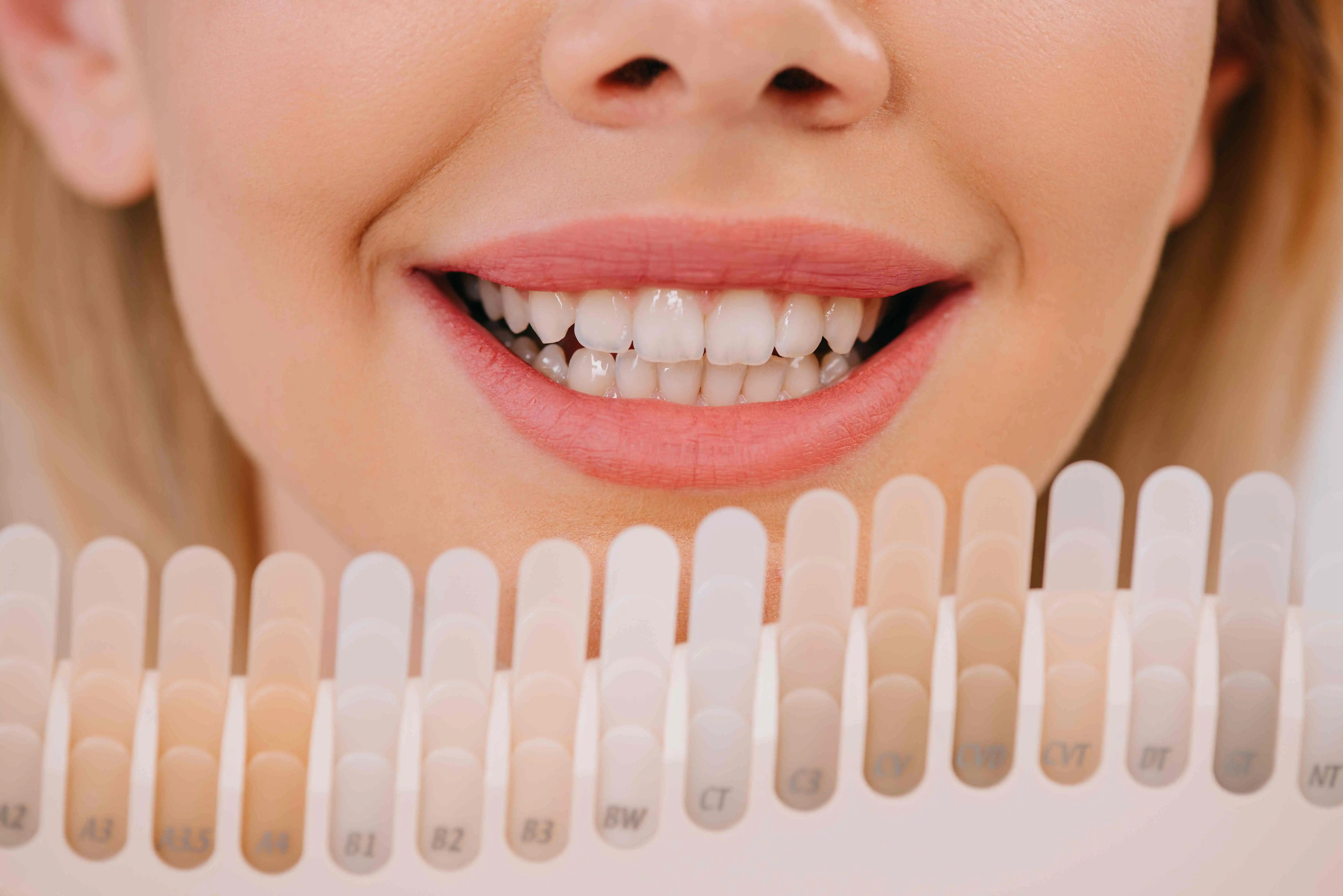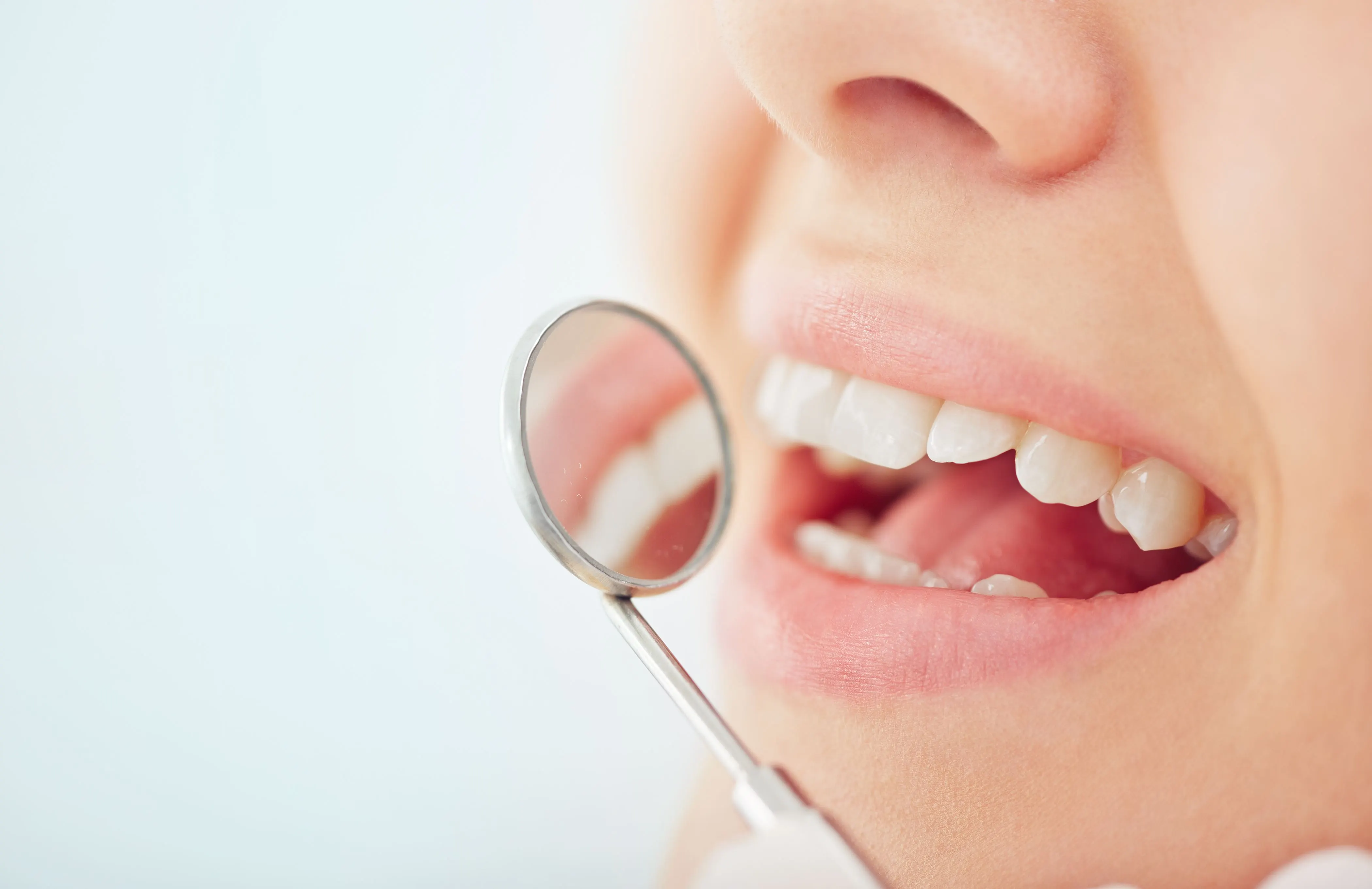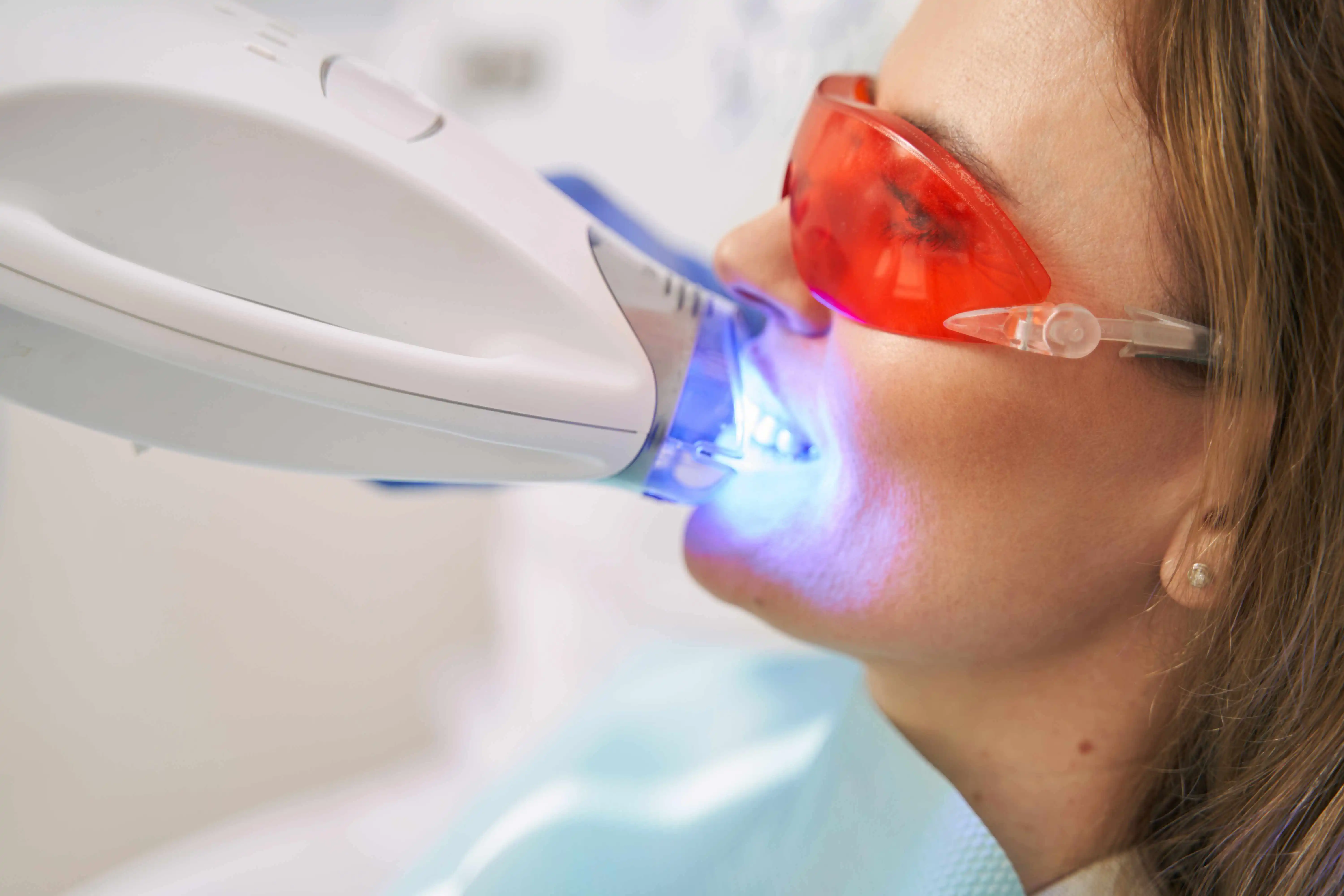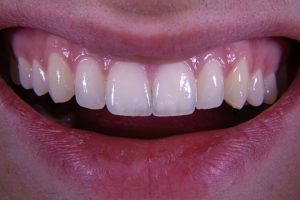Everybody dreams of having a shining bright smile like their favorite stars, but it’s tough to maintain healthy teeth due to busy routines. Thankfully, with the emergence of technology, there are various treatments available to aid you in getting a pearl-white smile, and teeth whitening is one of them.
As the name suggests, teeth whitening is a cosmetic dental procedure used to whiten and brighten the shine of your teeth that you have lost over time. While undergoing any dental procedure, having questions are expected. And like any other person, you may also be thinking, “How long does teeth whitening last?”
When you decide to visit a dentist to get your teeth whitened, keep in mind that the results won’t last forever. However, there are several methods that help you enjoy your brightened teeth for an extended period. We have listed all those methods in this post, so keep reading to know, “How long does teeth whitening last?”
Table of Contents
How Long Does Teeth Whitening Last?

The answer to the question, “How long does teeth whitening last?” depends on the method employed; professional dental operations provide long-lasting effects that can keep your teeth white for up to 2-3 years, while at-home practices only last a few months. The various techniques and how long their results will persist are listed in the table below.
Teeth Whitening Methods: Which Ones Last the Longest
| Teeth Whitening Methods | How Long Do The Results Last |
| Whitening Toothpaste | Up to three to four months. |
| Whitening Strips | Up to six months (after several treatments) |
| At-home Whitening Gel Trays | Up to one year or more |
| In-office Teeth Whitening or Chairside Bleaching | Up to one to three years (with proper oral hygiene) |
How Do Dental Stains Occur?

There are several ways by which your teeth can be stained. Experts have categorized them into two categories:
- Extrinsic stains
- Intrinsic stains
Extrinsic Stains:
Discoloration on the tooth surface, or extrinsic stain, is frequently caused by food, beverages, aging, and smoking. Dark-colored meals, such as coffee, red wine, and berries, are usually responsible for stains. Furthermore, the acidity in foods like citrus and soda can erode tooth enamel, resulting in discoloration. Teeth whitening procedures help in removing extrinsic stains.
Intrinsic Stains:
Tooth Infections can cause intrinsic discoloration; some drugs can also cause it, occurring within the tooth structure rather than on the surface. You must remember that teeth whitening procedures can’t help remove intrinsic stains; however, other cosmetic dentistry procedures, such as porcelain veneers and dental bonding, can help eliminate intrinsic stains.
What Foods Do I Need to Avoid After Teeth Whitening?
To avoid teeth discoloration, limit your consumption of certain foods and beverages. Tea, coffee, tomato juice, red wine, acidic beverages such as soft drinks and alcohol, sugary snacks, and things with artificial coloring are all examples of food to stay away from to keep your smile bright and white.
How Can I Make Teeth Whitening Last Longer?

By following the below-mentioned tips, you can maintain the whiteness of your teeth last longer after the teeth whitening procedure:
- Avoid coffee, tea, red wine, dark fruit juice, dark chocolate, red or brown sauces, and foods and beverages containing artificial colors.
- Avoiding the products listed above for the first 48 hours after your whitening procedure is crucial. If total abstinence is not possible, try to limit your use of these things for a few days following therapy.
- Practice proper oral hygiene to maintain the whiteness of your teeth. Brush your teeth at least twice every day to get rid of extrinsic stains, floss at least once daily, rinse with mouthwash once daily, and use whitening toothpaste and mouthwash. After your whitening procedure, if necessary, use toothpaste formulated for sensitive teeth.
Does Teeth Whitening Fade Over Time?
The effectiveness of teeth whitening differs from person to person. While some may find that the whitening effects fade quickly, others may discover that the results stay longer.
The time it takes to whiten one’s teeth is determined by factors such as the whitening process used, the frequency of whitening treatments, and the natural color of one’s teeth. If you’re worried about the fading of teeth whitening effects, you can consult a dentist and ask for recommendations that best suit you.
Does Teeth Whitening Damage Your Teeth?

Tooth whiteners’ active components can occasionally cause transient sensitivity in the teeth and gums. Prolonged use of peroxide or harsh whiteners may cause discomfort. There are a couple of other risks associated with teeth whitening procedures, some of which are listed below.
- There is a risk of gum burns and inflammation when utilizing at-home gel trays or chairside whitening. These can be avoided by preserving the gums before treatment and properly fitting trays. If gum burns or irritations do occur, they are usually minor and short-lived.
- Another possible side effect of tooth whitening is a transient loss of gum color, referred to as gum whitening.
- Because of the chemicals, swallowing a whitening product may induce gastrointestinal discomfort or moderate stomach ache.
- While studies on the effects of tooth whitening on dental enamel or dentin are equivocal, some people have reported tooth discomfort or sensitivity after the procedure. If you suffer such symptoms, you should see your dentist.
- There is also the possibility of whitening solutions accidentally entering a cavity or broken tooth, causing severe discomfort. In such instances, it is essential to seek dental care.
How Many Teeth Whitening Sessions Do I Need?
The number of teeth whitening sessions necessary is determined by the method employed and the degree of teeth staining. In-office treatments can produce obvious benefits in a single visit, whereas at-home therapies often require several weeks of regular use.
The degree of discoloration also influences the number of treatments required. It is best to talk with your dentist to identify the best method and number of treatments based on your unique needs and dental history.
How Much Does Teeth Whitening Cost?
The amount of a teeth whitening procedure depends on your chosen method. Generally, the most affordable options are over-the-counter products like whitening strips and toothpaste. Professional dental procedures such as chairside bleaching or custom-fitted trays cost significantly more.
Teeth whitening procedures can, on average, cost you around $300 to $2,000.
Get Your Teeth Whitened At Brooklyn Blvd Dental
Maintaining good oral hygiene and reducing consumption of dyed products is crucial to ensure long-lasting teeth whitening results. It’s best to consult directly with a dentist for detailed information and personalized recommendations.
They can assess your staining and suggest the most suitable whitening option, whether in-office treatment or take-home trays. To learn more or schedule a consultation, contact us today for professional guidance on achieving a brighter smile.
If you’re a Brooklyn Park, MN resident, then Brooklyn Blvd Dental is your go-to place for dental problems. Our team of dental professionals and dentists give you a fantastic teeth-whitening experience. Book an appointment by filling in your details in the form, call us at (763) 533-8669, or mail us at frontdesk1@brooklynblvddental.com.








